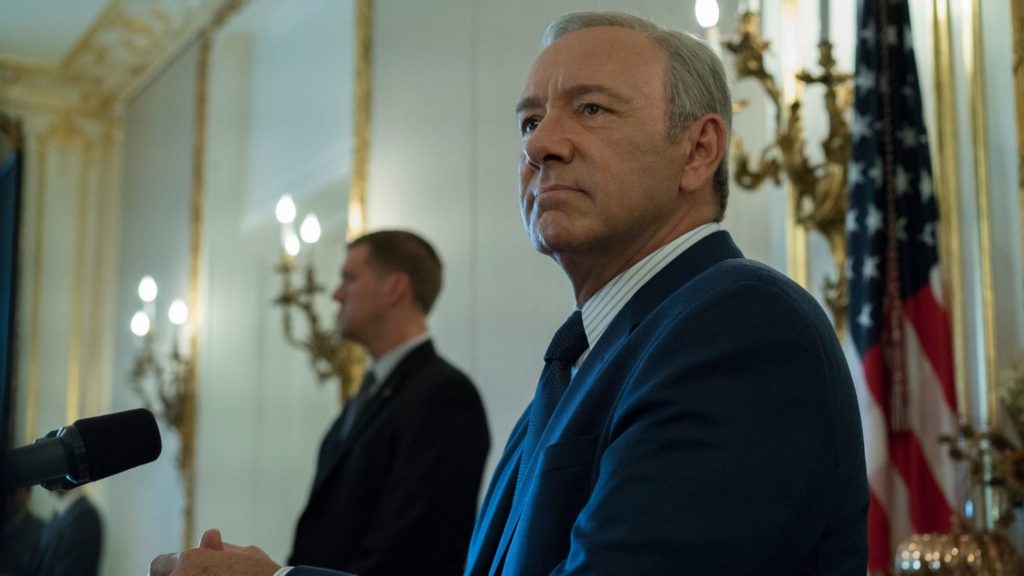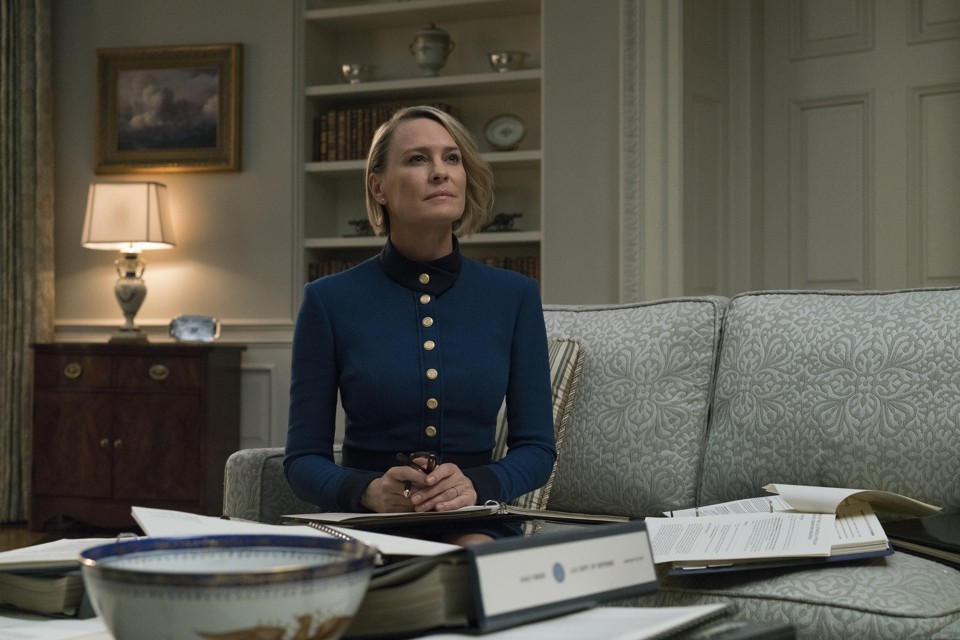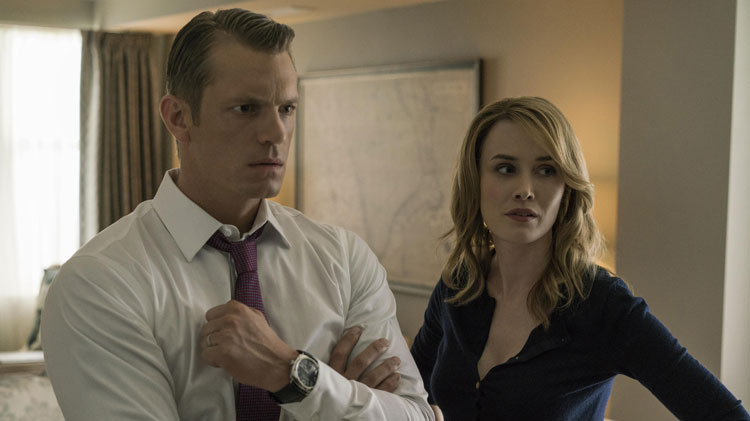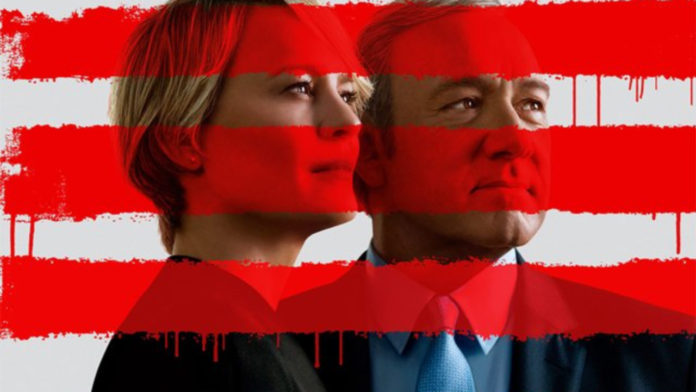Television has seen a sort of renaissance over the course of the last seven years. The quality of television has gone up and so too has the quantity of television programs that produce entertainment of that rising quality. From “Breaking Bad,” “Mad Men,” “True Detective” and “Fargo,” never has there been so much quality television to watch all at one time.
As revolutionary as those previously listed television serieses are, none of them has had the impact Netflix’s “House of Cards” has had on how we consume television. Netflix’s political drama has redefined what it means to watch television and was arguably the first television show to have been “binged watched.”
Early in the series, “House of Cards” provided an example of masterclass editing, storytelling and cinematography.
The ability of the show to combine all three of those crucial pillars of visual media in such a revolutionary format turned Netflix from “that app that lets me watch movies whenever I want” into a legitimate contender for the best distribution channel for TV series, competing toe to toe with HBO and AMC.
The greatness of seasons one, two and four of “House of Cards” had me especially excited to watch the newly released fifth season but as the episodes progressed toward the finale, I soon realized it might just be the worst season of the bunch.
In discussing “House of Cards,” it’s hard to avoid the all-consuming “spoiler talk” but if I’m going to speak in generalities, I think what made “House of Cards” so fascinating was that it was a darkened version of our American political system.
It was the story of Frank Underwood (Kevin Spacey) and his ever growing quest for power. That story resonated so well with people because it was believable that many real-life politicians in Congress and in the White House share Frank’s desire to become more powerful than they currently are.

Frank served as a reflective look at the worst type of politician, someone more concerned about their status and power than the people who helped them get that level of status and power.
Eventually, as the series progressed, Frank became a far more extreme caricature of a politician than we could ever imagine. He constantly bribed, swindled and killed his way to the presidency and once he got to the top, the show gave the audience a narrative so farfetched that the unique nature of it made the viewing experience enjoyable and mesmerizing.
Frank and Claire Underwood (Robin Wright) were obvious analogues to Bill and Hillary Clinton, even though the Underwoods were far darker characters. Everything about the series early on was a slightly darker take on American politics. Everything was skewed through the lens of conspiracy theory and made for a truly interesting “what if” tale.
Watching the Underwoods become the most powerful family in America was a wholly amazing trip but as we entered season five, what the show needed was to see the Underwoods’ fall from grace.
The show seemed to be headed in that direction but as the season came to its end, it was shown that everything went according to plan. The Underwoods had calculated every move ahead of everyone else. It was as if they were playing chess when everyone else had no idea the game had been invented.
Anyone who knows me knows I think “Breaking Bad” was the best television show of all time. The narratives of both “House of Cards” and “Breaking Bad” are actually quite similar, with two people doing everything it takes, including murder, to gain power on their quest to the top.
What made “Breaking Bad” so good was that it knew when people would tire of seeing a villain as the main character. Once Walter White reached the pinnacle, the show transitioned into telling a story of his fall from the top. The audience went from rooting for Walter to rooting against him, and that type of storytelling was absolutely refreshing.
It doesn’t seem as if Netflix has any interest in watching the Underwoods fail, and that makes the show tiring to watch after a while.

What also gets tiring is that only a handful of characters in the series aren’t interested in power. I know that “House of Cards” is a cynical look at Washington, D.C., but the fifth season took that cynicism and dialed it to 11. No one seems interested in doing the right thing for the country but is only interested in doing the right thing for themselves.
As cynical as people are with our real-life politicians, I think almost everyone can point to politicians who actually care about citizens and aren’t too concerned with the quest for power. I think people can highlight politicians who have a genuine interest for the public good, and I think that’s true of politicians in both major parties. I can’t name one politician in “House of Cards” that has any moral compass.
All the characters in Congress and in the Underwood administration are solely focused on making themselves more powerful. The only characters who seem to have any goal beyond power are Tom Hammerschmidt (Boris McGiver) and Hannah Conway (Dominique McElligott).
As the show progressed through the seasons, I was awaiting the politician who would be the character to show any sort of redeeming quality for public servants. Heather Dunbar (Elizabeth Marvel) seemed to be that character in season four but was nowhere to be seen in season five.

Eventually, I realized that Netflix wants to continue showing this dark caricature of American politics and while that was great for the first four seasons, the audience begins to demand an emotional payoff. We’ve invested our time to watch the Underwoods’ climb to the top, and now it was the time to reward the audience by telling the destruction of the Underwood empire.
That’s not to say that everything in “House of Cards” is bad. Aesthetically, the show is just as amazing as it was in its first season. The same goes for the editing. The dialogue is still immensely intelligent, and the pacing is nearly perfect. The acting is still top notch, and it is a real treat to see these amazing actors put on amazing performances.
The problem isn’t that the construction of the show is bad. It’s that the narrative they have been telling for the past five years has overstayed its welcome. An audience can only take so much of the same thing before they begin to revolt. “House of Cards” still has the ability to course correct, but I think that can only happen if the show starts taking significant steps toward its endgame next season.
One of the major problems studios have is knowing when to end their shows. I understand the entertainment industry is a business and as long as “House of Cards” makes Netflix money, they’ll keep making “House of Cards.” I’d rather Netflix take the stance AMC did with “Breaking Bad” and end the show with the audience wanting more rather than continue pumping out episodes to the point where the audience starts to say, “It isn’t as good as it used to be.”
I give “House of Cards” Season Five: 6 / 10

















